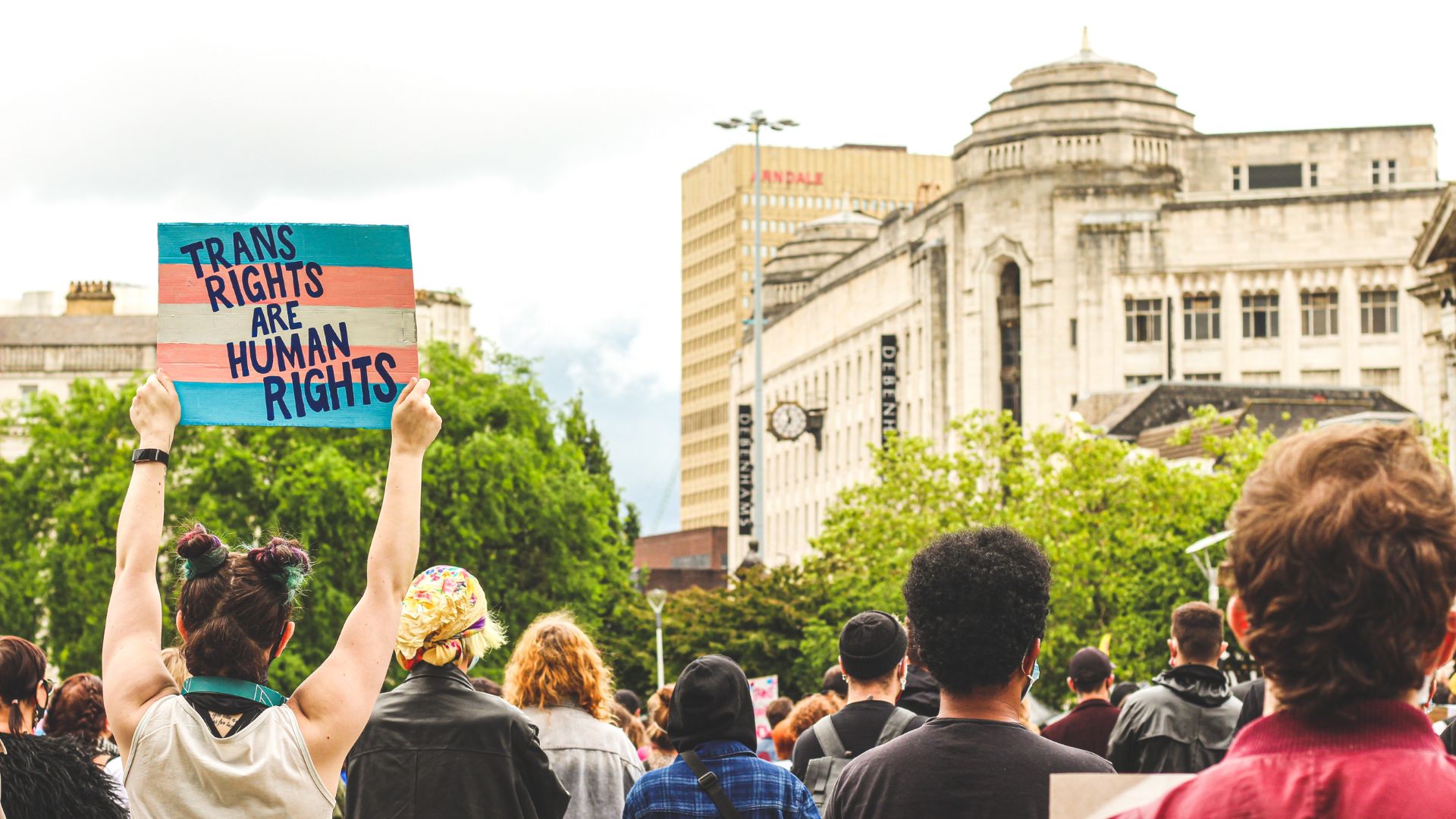“There has been a concerted effort by the media and politicians to chip away at people’s acceptance and tolerance.”
Why has hostile coverage of transgender issues ramped up?
Hostile media coverage of trans issues has soared in recent years. The Daily Mail, for example, has increased the number of articles it publishes on trans people by +1817%, Novara media research shows, the vast majority of which are negative. Neither the Conservatives or Labour support the right to gender self-identification.
Nancy Kelley, former CEO of LGBTQ+ charity Stonewall, was “deeply saddened” to see the decline in support for trans people.
“Years of relentless toxic coverage and political manipulation is making us less tolerant,” she said.
McConnell echoed this criticism of the media and politicians, describing the shift as a “confected moral panic”.
After carrying and giving birth to his own two children, McConnell is fighting a court case to allow trans parents to have their true identities recognised on their children’s birth certificates.
Advertising helps fund Big Issue’s mission to end poverty
Trans people just want to live “normal lives”, he said.
“You can’t function like a normal person if you are trying to hide this huge fundamental part of yourself.”
Women were more likely to express progressive views on transgender people – 71% said they were “not prejudiced”, compared to 57% of men. Some 69% of younger people (aged 18 to 34) say that they are “not prejudiced” towards trans people, compared with 51% among the over-70s.
LGBTQ+ charity Stonewall expressed “alarm, but not surprise” over the shift against trans people.
“The only way society has moved on from previous moral panics is by political and societal leaders standing strong against hatred and misinformation – this is what we all need to do now to get the UK back on track,” the charity tweeted.
What else did the British Social Attitudes Survey reveal?
The survey did reveal other, more positive trends.
Advertising helps fund Big Issue’s mission to end poverty
Some 76% of people support a woman’s right to choose an abortion, up from 37% when the question was first asked 40 years ago.
Nearly four in every five people (78%) believe pre-marital sex is not wrong at all, compared to 42% in 1983.
Attitudes to gender roles are shifting too: 75% of respondents regarded ironing as the women’s job 40 years ago, compared with 16% now.
In 1983, 50% of respondents said same-sex relationships were “always wrong”, compared with 9% in 2022.
Interestingly, the proportion of people who believed same-sex relationships were wrong rose by 14% between 1983 and 1986, after media and MPs started politicising the issue.
There are parallels with the backslide in trans rights, McConnell says.
Advertising helps fund Big Issue’s mission to end poverty
“There was a conservative media campaign to smear and demonise gay people,” he said. “So we’ve been here before.”
He is optimistic that British attitudes towards trans people will eventually liberalise, too, adding: “The war on trans people will run out of steam.
“The vast majority of people don’t think about us, don’t care about us, are happy for us to have equal rights and to live in peace.”









